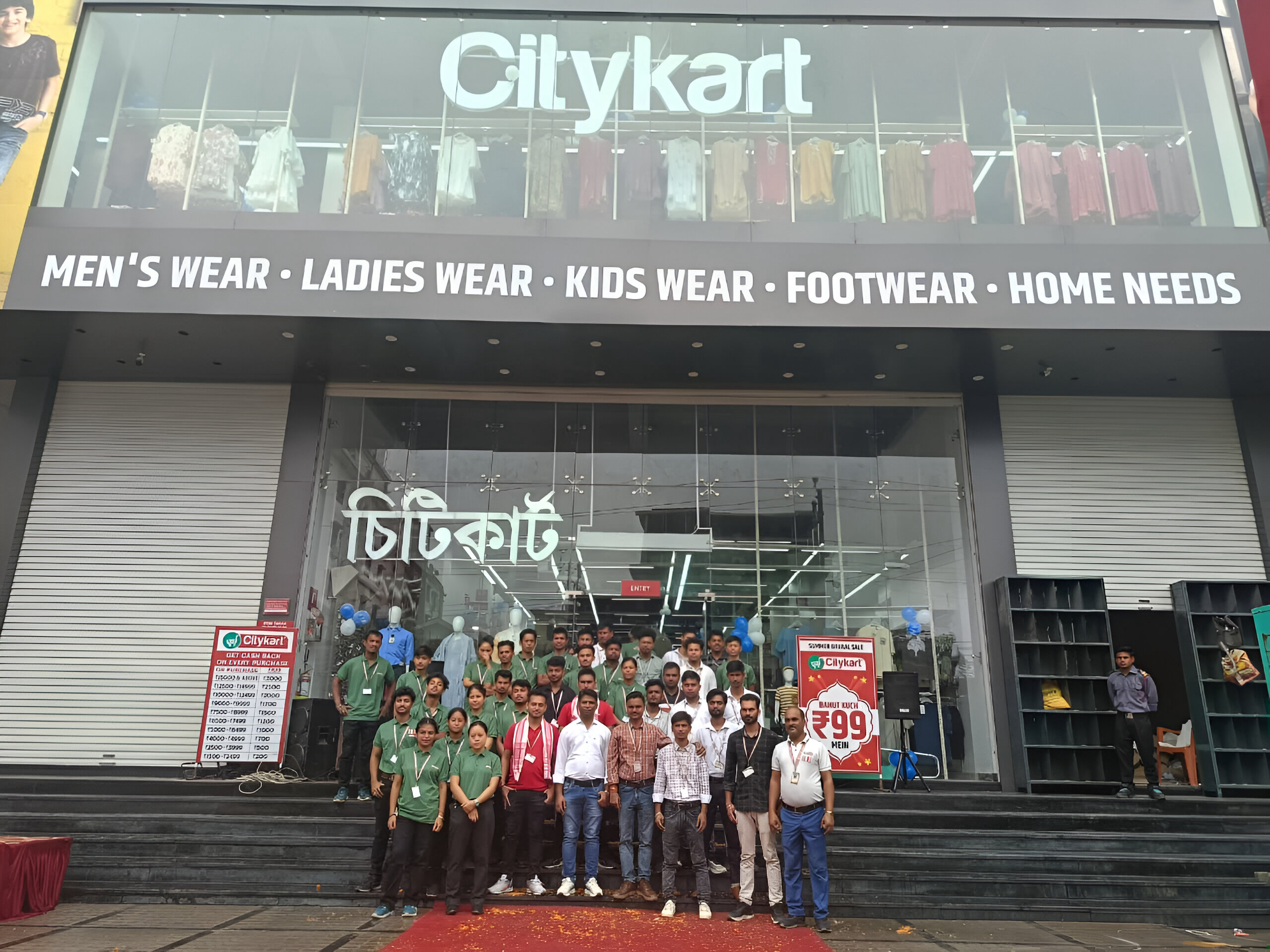Citykart Retail, one of India’s fastest-growing value fashion chains, has achieved a major milestone with the opening of its 150th store — a 10,000 sq. ft. outlet in Darbhanga, Bihar. This landmark underscores Citykart’s position as a leading force in India’s organized value fashion market, catering to aspirational consumers in Tier II–IV towns with affordable, trend-led apparel and lifestyle products.
“Crossing 150 stores is not just a number — it reflects how value fashion is evolving beyond metros,” said Sudhanshu Agarwal, Co-Founder & Managing Director, Citykart Retail. “Our mission has always been to make stylish, good-quality apparel accessible to every family in India’s heartland. With strong funding support and operational maturity, we are now on course to reach ₹1,300 crore in revenue this fiscal.”
A Growth Story Woven in Small-Town India
Founded in 2012, Citykart has built its success on deep consumer insight, sharp price positioning, and a format finely tuned to Bharat’s growing fashion appetite. Today, it operates across 14 states, including Uttar Pradesh, Bihar, Jharkhand, Odisha, Madhya Pradesh, and West Bengal — with stores typically spanning 8,000–15,000 sq. ft., located in high-footfall markets and local high streets.
The company reported FY 2024–25 revenue of ₹919 crore, up 38% year-on-year, and projects to touch ₹1,300 crore in FY 2025–26, backed by network expansion, an improving product mix, and greater supply chain efficiencies.
Citykart’s growth momentum is also supported by strong institutional backing — a ₹538 crore Series B funding round led by TPG NewQuest and A91 Partners, valuing the company at around ₹1,400 crore.
“With this capital infusion and growing traction across small-town India, we’re well-positioned to accelerate store rollouts, strengthen supply chains, and reach 300 stores over the next few years,” Agarwal added.
Product Strategy & Value Positioning
Citykart’s core proposition lies in ‘value-for-money’ fashion — delivering trend-led apparel and everyday essentials for every family member, with basics starting at just ₹99. Key categories include men’s casualwear, women’s ethnicwear, kidswear, and footwear, tailored to regional and festive preferences, with prices beginning at ₹199.
“The strength of Citykart lies in our ability to bring relevant, quality fashion at prices that truly connect with the aspirations of small-town India,” said Rohit Agarwal, Co-Founder & Director, Citykart Retail. “Every collection is curated to ensure freshness and accessibility — we want our customers to find something new and affordable every time they visit our stores.”
This hyper-local understanding — coupled with rapid merchandise rotation — has enabled Citykart to build a loyal base of over 25 million annual shoppers, who view it as both a style destination and a value destination.
Customer-Centric Programs That Build Loyalty
In a market where repeat footfall defines success, Citykart has rolled out two consumer-first loyalty programs — the Cashback Scheme and the Bill Buster Offer.
Under the Cashback Scheme, customers earn assured cashback on every purchase, redeemable on their next visit — a simple, transparent way to build long-term loyalty across product categories like fashion, footwear, home essentials, and accessories.
The Bill Buster Offer, on the other hand, adds an element of delight — customers shopping for ₹1,999 or more receive a free gift worth ₹249, with MRP up to ₹1,499.
“Our loyalty initiatives are designed to make shopping more rewarding for families in our core markets,” said Sudhanshu Agarwal. “They drive repeat purchases and reflect our commitment to putting the customer first.”
Behind the Scenes: The Business of Fashion in Value Retail
Citykart’s model is built on operational discipline, cost efficiency, and fashion relevance. The company leverages data-driven assortment planning and supplier partnerships to minimize markdowns and ensure quick replenishment.
By combining private-label development with direct sourcing, Citykart achieves higher margins while retaining affordability. Its merchandising rhythm mirrors fast-fashion principles — but adapted to local sensibilities, climate, and seasonality.
“Operational efficiency, local insight, and disciplined expansion will define our next phase,” noted Sudhanshu Agarwal. “We are deeply focused on sustainable profitability and enhancing the shopping experience for every customer who walks into our stores.”
Fashion for Bharat, by Bharat
Citykart’s journey from a single store to a 150-outlet network in under a decade epitomizes the new face of India’s retail transformation — one driven by aspirational small-town consumers seeking style without excess.
As it eyes 40+ new stores this fiscal and builds toward its ₹1,300 crore revenue target, Citykart stands as a case study in how thoughtful retail design, consumer empathy, and disciplined scale can together create a fashion revolution rooted in Bharat.



